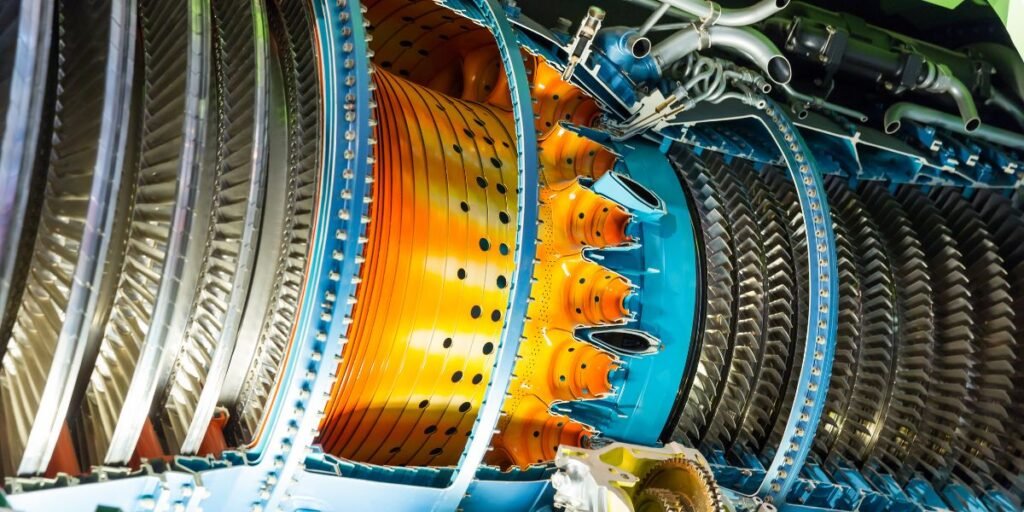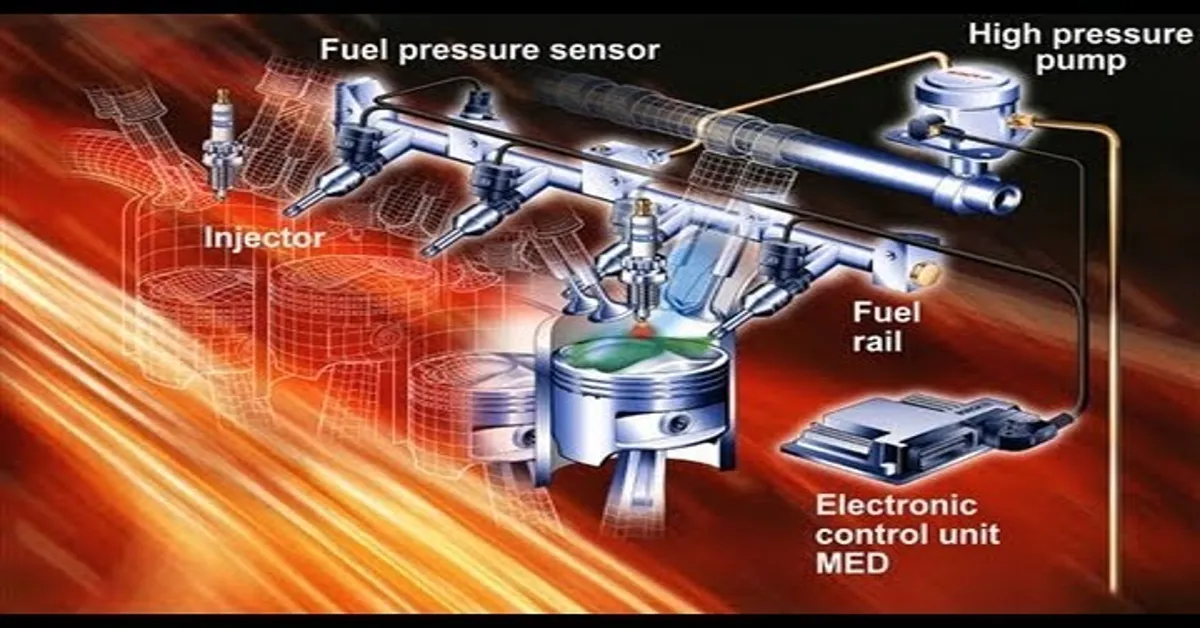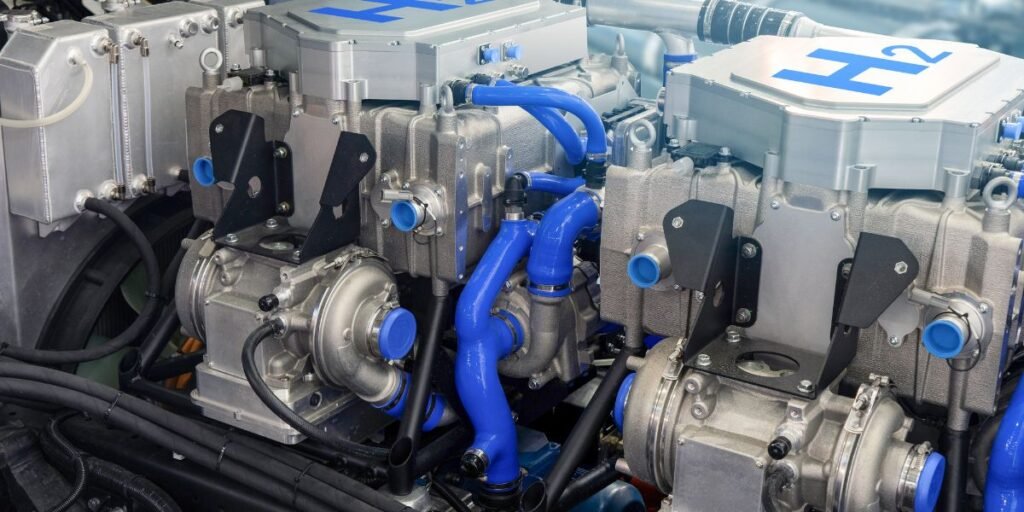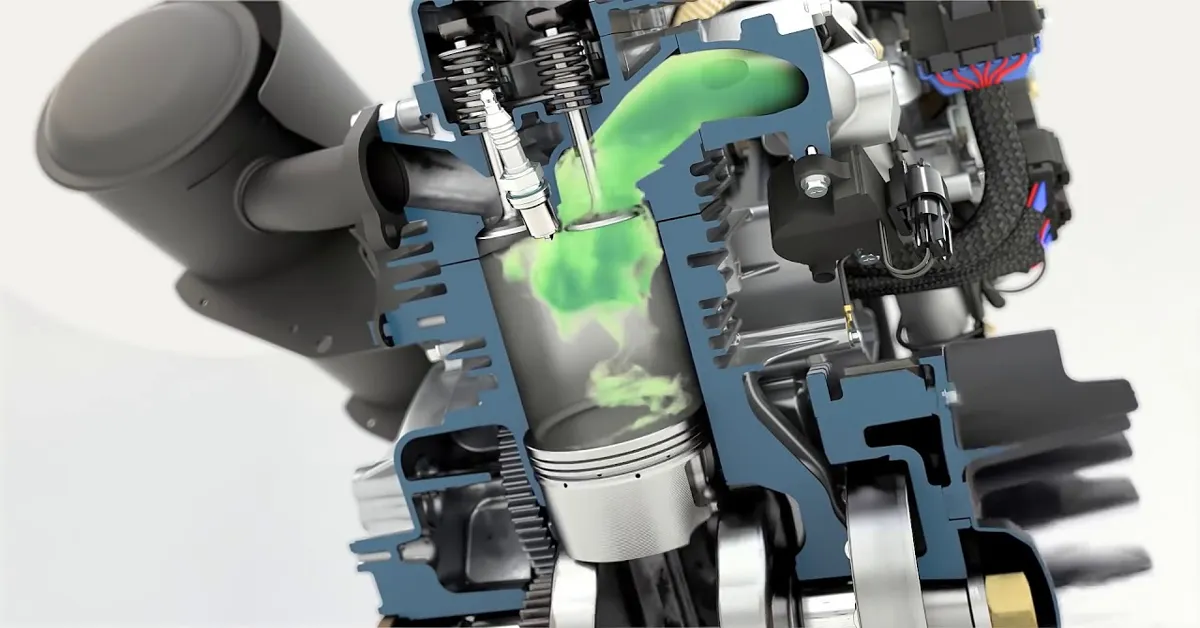Electronic Fuel Injection, often abbreviated as EFI, is a pioneering technology that has revolutionized the way internal combustion engines function. This innovative system has replaced traditional carburetors, offering more precise control over the fuel-air mixture in an engine.
EFI plays a pivotal role in modern vehicles, enhancing fuel efficiency, reducing emissions, and improving overall performance. In this introduction, we will delve into the fundamentals of Electronic Fuel Injection, exploring its history, components, and the manifold benefits it brings to the world of automotive engineering.
Key Takeaway
- The introduction of electronic fuel injection systems has led to more efficient cars, better fuel economy, and lower emissions.
- This technology has revolutionized the automotive industry.
- Electronic fuel injection systems have replaced carburetors.
- They work by electronically controlling the amount of fuel injected into the engine, resulting in more precise and efficient combustion.
- The main components of an electronic fuel injection system are the fuel injectors, sensors, and electronic control unit (ECU).
- The sensors gather data from the engine and send it to the ECU, which then adjusts the fuel flow accordingly.
- Electronic fuel injection systems provide better fuel economy, improved engine performance, and reduced emissions compared to carburetors.
- They also allow for easier cold starts, smoother idling, and higher power output.
- Regular maintenance of electronic fuel injection systems is essential to ensure optimal performance.
- Overall, electronic fuel injection systems have greatly improved the driving experience and have become the standard in modern vehicles.
What is an Electronic Fuel Injection System?
Innovative, efficient, and precise – these are just a few words that come to mind when thinking about the electronic fuel injection system. As technology continues to advance at a rapid pace, the automotive industry is constantly evolving to meet the demands of modern consumers. At the heart of this evolution lies the electronic fuel injection system – a game-changing technology that has revolutionized the way fuel is delivered to an engine.
From improved performance and fuel efficiency to reduced emissions and smoother operation, this system has truly transformed the driving experience. In this article, we will take a closer look at this cutting-edge technology, exploring its components, functions, and benefits. So buckle up and get ready to dive into the world of electronic fuel injection systems!

electronic fuel injection system
| Component | The electronic fuel injection system is made up of several components, including the fuel pump, fuel injectors, engine control unit, and sensors. | These components work together to ensure that the correct amount of fuel is delivered to the engine for optimal performance. |
| Function | The main function of the electronic fuel injection system is to precisely control the amount of fuel that is delivered to the engine based on various inputs such as engine speed, temperature, and load. | This ensures that the engine is running efficiently and reduces emissions. |
| Advantages | Compared to traditional carbureted systems, electronic fuel injection offers several advantages, including improved fuel efficiency, more accurate fuel delivery, and better engine performance. | It also allows for more advanced engine control and diagnostic capabilities. |
| Maintenance | Proper maintenance of the electronic fuel injection system is crucial for optimal performance and longevity. | This includes regular cleaning of the injectors, replacing filters and sensors as needed, and ensuring proper fuel pressure and flow. |
| Troubleshooting | If the electronic fuel injection system is not functioning properly, it can lead to issues such as poor engine performance, difficulty starting the engine, and increased emissions. | Troubleshooting techniques may include checking for faulty sensors, clogged injectors, or issues with the engine control unit. |
| Future of Fuel Injection | As technology continues to advance, electronic fuel injection systems are becoming more sophisticated and efficient. | New advancements such as direct injection and hybrid fuel systems are being developed to further improve fuel economy and reduce emissions. |

How Does an Electronic Fuel Injection System Work?
The Evolution of Electronic Fuel Injection Systems In the world of automotive engineering, there are few inventions as revolutionary and impactful as the electronic fuel injection system. Gone are the days of carbureted engines, with their finicky tuning and inefficient fuel delivery. Today, modern cars are equipped with advanced fuel injection systems that have transformed the driving experience.
But how exactly does this technology work? And what makes it so much better than its predecessors? Join us on a journey through the evolution of the electronic fuel injection system from its humble beginnings to its current state-of-the-art form. Discover the inner workings of this complex system and how it has revolutionized the way we drive. From improving fuel efficiency and reducing emissions to enhancing engine performance and drivability, this technology has truly transformed the automotive industry.
So buckle up and get ready to explore the fascinating world of electronic fuel injection systems. We’ll delve into the history, mechanics, and benefits of this cutting-edge technology. By the end, you’ll have a newfound appreciation for the crucial role it plays in modern cars. Let’s dive in and discover what makes this system such a game-changer.
Benefits of Electronic Fuel Injection Systems
From Carburetors to Electronic Fuel Injection Systems From the early days of automobiles, fuel delivery systems have undergone a significant evolution. Gone are the days of carburetors, which were once the standard method of delivering fuel to the engine. Today, electronic fuel injection systems have taken over, offering better performance, fuel efficiency, and emissions control.
The advent of computer technology and advanced sensors has revolutionized the way fuel is delivered to the engine, making the traditional carburetor obsolete. In this article, we will explore the journey of fuel injection technology and how electronic fuel injection systems have become the preferred method for modern vehicles. So buckle up and join us on this exciting ride through the history and advancements of the electronic fuel injection system.
The Future of Electronic Fuel Injection Systems
Rev up your engines and get ready to explore the world of electronic fuel injection systems. As technology continues to advance, it’s no surprise that even our vehicles have become smarter. Gone are the days of carburetors and manual adjustments – now, we have a sophisticated system that handles the fuel delivery process with precision and efficiency.
From improved performance to reduced emissions, electronic fuel injection systems have revolutionized the way we drive. But how exactly does this system work? And what benefits does it offer? Join us as we dive into the inner workings of this modern marvel and discover why it’s become the go-to choice for fuel delivery in the automotive industry.
Important Notice for readers
Attention all readers! Are you curious about the inner workings of your vehicle’s fuel system? Look no further! In this article, we will delve into the world of electronic fuel injection systems. Discover how this advanced technology has revolutionized the way we consume fuel and how it benefits both the environment and your wallet. From its components to its functions, we will cover everything you need to know about this crucial aspect of modern vehicles.
So buckle up and get ready to explore the fascinating world of electronic fuel injection systems. Keep reading to become a fuel system expert!

Frequently Asked Questions [FAQs]
1. What is an electronic fuel injection system?
An electronic fuel injection system, also known as EFI, is a modern method of fuel delivery in automobiles. It uses electronic sensors and fuel injectors to precisely regulate the amount of fuel needed for efficient combustion in the engine.
2. How does an electronic fuel injection system work?
An electronic fuel injection system works by using a computer-controlled fuel pump to supply fuel to the engine. The amount of fuel is regulated by sensors that measure air intake, engine temperature, and other factors. The fuel injectors then spray a fine mist of fuel into the engine for optimal combustion.
3. What are the benefits of an electronic fuel injection system?
Electronic fuel injection systems offer several benefits over traditional carburetors, including improved fuel efficiency, better engine performance, and reduced emissions. They also have fewer moving parts, making them more reliable and easier to maintain.
4. Do all modern cars use electronic fuel injection systems?
Yes, almost all modern cars now use electronic fuel injection systems. This technology has largely replaced carburetors due to its improved efficiency and performance. However, some older or vintage cars may still use carburetors.
Conclusion
Electronic fuel injection technology has revolutionized the way we think about cars and driving. With its precision and efficiency, it has made our vehicles more reliable, powerful, and environmentally friendly. By understanding the benefits of electronic fuel injection and how it works, you can make informed decisions when it comes to maintaining and upgrading your vehicle.

Leave a Reply